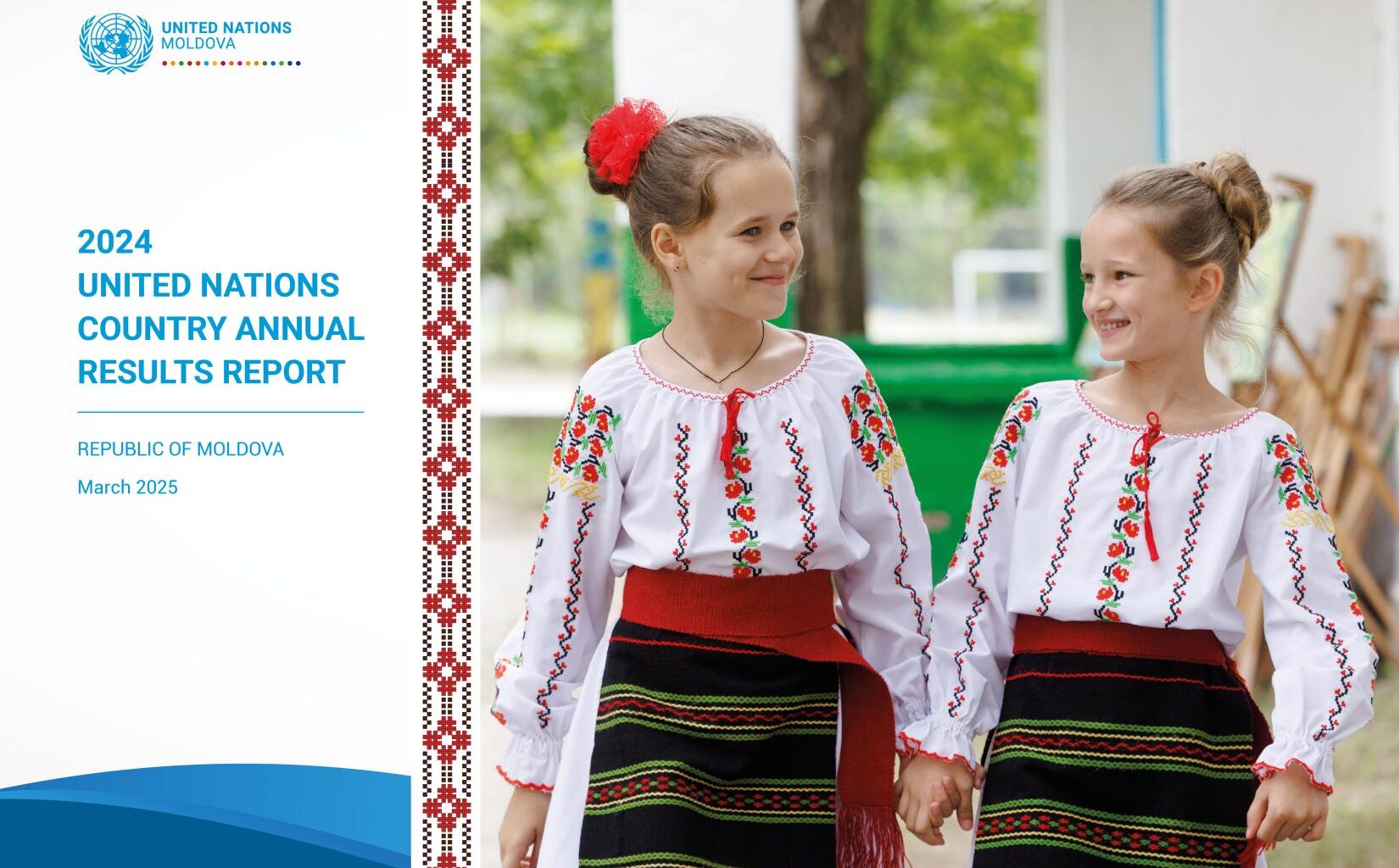The United Nations and the Government of Moldova ensured a more inclusive development for people and communities in 2024
In 2024, the United Nations Country Team in Moldova deepened its partnership with the Government and people of Moldova to support the achievement of the Sustainable Development Goals (SDGs).
The partnership between Moldova and the UN is deep rooted at global, regional and country levels. It reflects both Moldova’s commitment to global goals and multilateralism as well as the United Nations’ strength as a multilateral and politically impartial system that brings together expertise across its development, humanitarian, and peacebuilding mandates. Through integrated programs and strong government collaboration, the UN entities helped drive national progress across critical areas such as human rights, social protection and inclusion, climate action, food security, gender equality, public health, and refugee inclusion.
During the meeting of the Joint Steering Committee of the United Nations Sustainable Development Cooperation Framework for Moldova 2023-2027 held on 14 May 2025, the Prime Minister Dorin Recean thanked the UN entities in Moldova for their continued support to communities and people across the country, as well as for the assistance contributing to the strategic goal of European integration: “The Republic of Moldova remains close to Ukraine, and we need to make sure that Ukrainians living here feel at home: we are integrating them into the social and economic systems, into the labor market, and we thank you for your support in this regard.” highlighted the Prime Minister.
Flagship results in 2024 include:
Modernizing the social protection system – RESTART reform: Under UNICEF’s leadership, and in response to the call from the Ministry of Labor and Social Protection, the United Nations supported the RESTART reform to modernize Moldova’s social assistance system. As a result of our joint efforts, more children, women and men especially from vulnerable groups received integrated social protection and digital case management services, reinforcing the country’s commitment to human rights and inclusion.
Protecting energy-vulnerable households: With support from multiple funding partners, UNDP strengthened Moldova’s Energy Vulnerability Reduction Fund (EVRF), helping mitigate the impact of energy price increase on over 790,000 low-income families (almost 66% of all households) and promoting energy-efficient practices.
First digital Census implemented: Led by UNFPA and funded by the European Union, the 2024 Population and Housing Census employed digital technologies for the first time in Moldova, enhancing participation and transparency, with a 98.9% response rate achieved.
Supporting small farmers and ensuring food security: In response to the continued impact to the war in Ukraine, severe droughts, and global grain market disruptions the UN (led by FAO and UNDP), in collaboration with the Ministry of Agriculture, and support from Switzerland and Austria through a local Joint Fund provided essential farming inputs and introduced climate-smart practices enhancing food security and livelihoods for over 11.500 small farmers and 17,000 households.
Inclusive Refugee Response: In 2024, the UN, led by UNHCR, advanced results through the Cooperation Framework and the Refugee Response Plan (RRP), which emphasized localization by working through national systems and civil society. This approach strengthened social cohesion, supported host communities, and improved refugee inclusion in national services. Moldova’s refugee response is now seen as a potential model for humanitarian–development – peace coherence, to be shared in regional and global platforms.
“As Moldova advances its EU accession agenda, the UN’s work is increasingly aligned with the national reforms needed to meet both EU criteria and SDG targets. From gender equality and labor rights to climate action and statistics, the UN has supported reform implementation in line with the country’s priorities. Today, we recommit to supporting the people and institutions of Moldova on their SDG pathways.” highlighted Yesim Oruc, Resident Coordinator of UN Moldova.
The results achieved in 2024 were made possible thanks to the close collaboration between the United Nations and the Government of Moldova, the strong leadership of UN agencies, and the support of development partners, including the European Union, its Member States, and institutions. The UN Country Team delivered $169 million in 2024 in development assistance entrusted to us by our donor partners. These funds were directed towards programmes and projects that span across all Sustainable Development Goals (SDG), with the largest share of expenditures being directed towards health (SDG 3), reducing poverty (SDG 1), food security (SDG 2), gender equality (SDG 5), and peace & justice (SDG 16).
